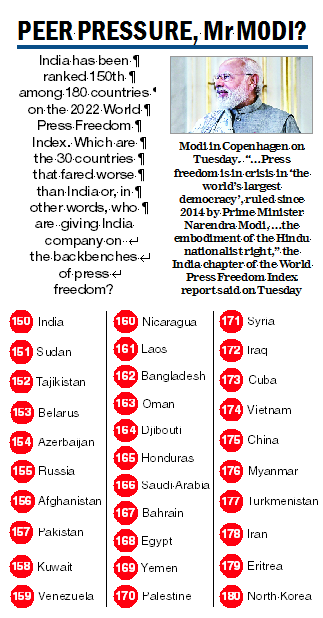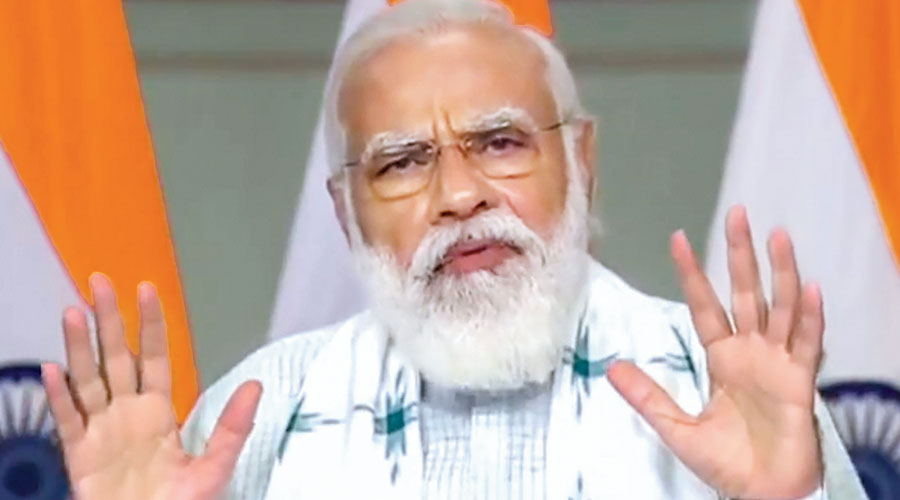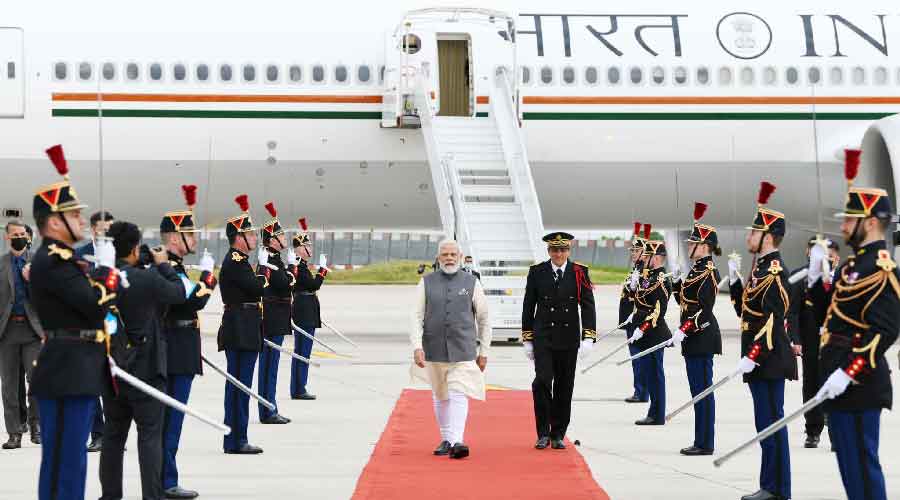Prime Minister Narendra Modi has attracted criticism during his ongoing Europe tour for failing to take questions from the media after bilateral engagements with his counterparts, and also for India’s human rights record on his watch.
It has been the norm since 2015-end for the Prime Minister to only issue a media statement along with his counterpart without fielding questions (journalists from each country were earlier allowed two questions). But this time Richard Walker, chief international editor with German broadcaster Deutsche Welle, flagged the issue in a tweet on Monday during Modi’s Germany visit.
“Modi & Scholz about to appear before the press in Berlin — They will announce *14 agreements* between their two governments — They will take *zero questions* at the insistence of the Indian side,” he wrote.
After Reporters Sans Frontieres (RSF) ranked India 150th among 180 countries on the World Press Freedom Index, Walker highlighted the report as a postscript.
All major democracies have fared better than India on the index, but the RSF has not blamed the Modi government alone for the country’s slide in respect of media freedom.
The country fact file too talks about ownership patterns where a few newspapers control the bulk of the readership from several languages.
The countries below India on the index include Pakistan, China, Bangladesh, Iran, Iraq and North Korea.
In India, Modi has yet to address a news conference or agree to an unscripted interview as Prime Minister. Overseas, the fear is that the foreign media would ask questions on human rights, overshadowing the carefully orchestrated optics of these visits that the BJP leverages in domestic politics.
While Modi has ended the longstanding practice of journalists being allowed to fly with the Prime Minister on the special aircraft during foreign visits, the institutional recall is that the two-question norm was abandoned after he was asked about intolerance in India during a UK visit in November 2015.
This was weeks after 51-year-old Mohammad Akhlaque was lynched on suspicion of storing beef at his home in Dadri, Uttar Pradesh.
There have since been instances of visiting delegations being keen on a media interaction with the Prime Minister but having to organise it on their own after the bilateral engagement, the most recent instance coming during the visit by British Premier Boris Johnson.
When then US President Donald Trump visited Ahmedabad and Delhi in early 2020, the embassy had organised a separate news conference for him at a hotel after the bilateral.

This time, while the diaspora has turned out in strength to serenade the Prime Minister, human rights activists have been criticising their own governments for failing to raise the attacks on minorities and the “democratic backsliding” in India during the bilateral deliberations.
Empty shoes
On Tuesday, while the Danish royal family was hosting Modi to a formal dinner, human rights activists associated with a Dutch think tank called The London Story placed empty shoes in front of the Amalienborg Palace in Copenhagen.
“The empty shoes, which symbolise the lack of people speaking out against Modi in Europe, were framed by printed quotes from Indian civil society ‘actors’ calling for urgent international support,” the think tank said in a media release.
“The Nordic governments are happily turning a blind eye to atrocities in India. Their meeting agenda is only about trade and clean energy partnerships. How much worse does it have to get? This is unacceptable: silence means complicity,” Alena Kahle, who works with the think tank, said in the statement and also on local television, which picked up the protest.












